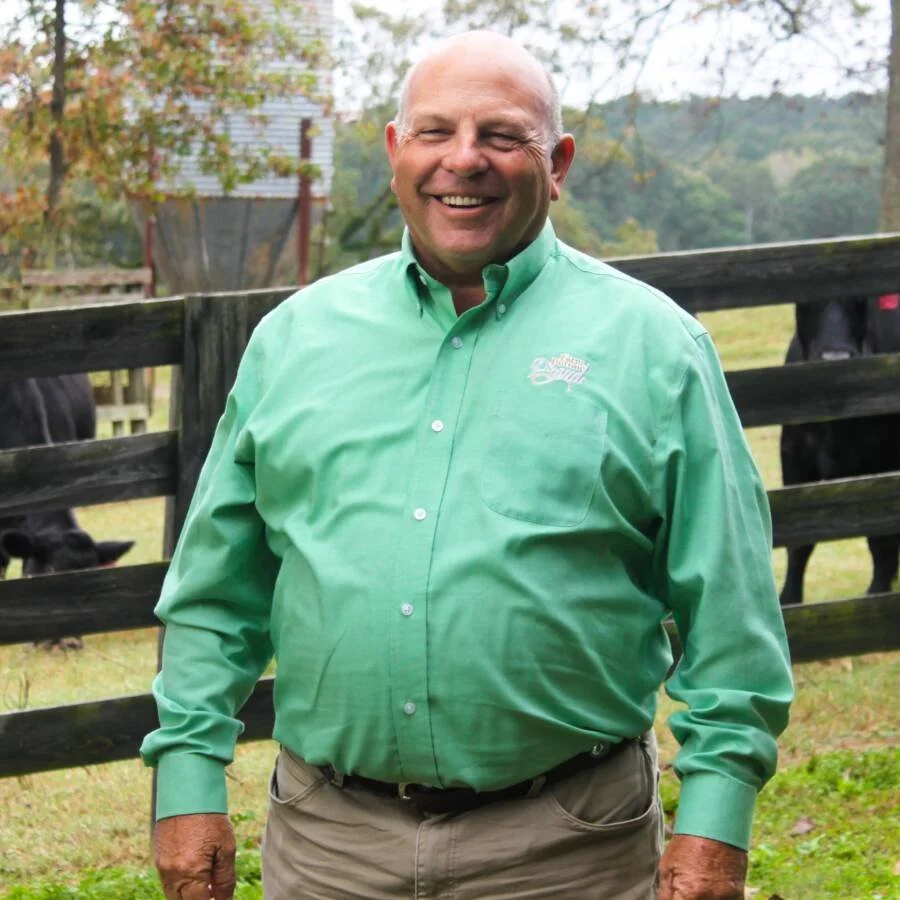Unity in the Supply Chain
By Zippy Duvall, President of the Farm Bureau
Originally published on September 3, 2025 on the Zipline, Farm Bureau.
From driving the tractor to cleaning the barns, and from keeping the books to checking the fences, everyone on the farm has an important role to play. It takes teamwork and a shared purpose to keep things running smoothly, and the same holds true across the food system. Every step in our supply chain—from the farm fields to the grocery store shelves—is grounded in the same mission: to keep our food supply safe, sustainable and affordable.
Farmers and the Supply Chain
Farmers and ranchers understand that we are just one part of the supply chain, and that while we may be the starting point, there are many other steps to provide the food on our plates, clothes on our backs and renewable fuel in our vehicles. As part of a larger system, we also know that decisions made downstream often ripple back to our farms. Whether adapting practices for sustainability, adjusting to a changing market or working to do more with less, there are a variety of pressures affecting the supply chain, and we have to work together as partners to achieve the best outcomes for farmers and consumers.
Unity in the supply chain starts with building relationships. If we want our supply chain partners to understand the realities of farming and ranching, we must be willing to meet them at the table and share our stories. I have said before that the strongest tool in our advocacy toolbox is our personal stories and the same goes for sharing with supply chain partners how their commitments and supplier requirements impact our livelihoods. At the same time, an open dialogue with stakeholders across the supply chain also helps us better understand their pressures, address shared challenges and work together to keep our food supply secure.
“When we work together, we can find common ground, create solutions that work for everyone, and ensure our food supply remains safe, sustainable and affordable.”
The relationships with our food and supply chain partners are especially important as supply chain challenges continue to increase. From rising input costs and increasing global tension to the ongoing labor crisis, there is no shortage of pressures on every level of the supply chain. As partners, we must work together to find solutions that keep farmers and ranchers economically sustainable.
Farm Bureau and the Supply Chain
At Farm Bureau, we take our role as the voice for farmers in supply chain conversations seriously. Just like we do with our lawmakers, we meet with companies across the supply chain to discuss the challenges and opportunities for our farms and rural communities. Whether we are sitting down with company leaders, participating in coalitions or serving as the representative for farmers in a room full of supply chain stakeholders, Farm Bureau is committed to ensuring that the concerns of our farm families are heard. That’s why we also continue to look for new partnerships on all levels of the supply chain, including input companies, equipment manufacturers, food processors, retailers and restaurants. We know the more trust and open dialogue we can create across the chain, the more unity we can achieve.
The pressures facing our supply chain are not going away anytime soon, and if anything, they will only continue to grow. That is why the relationships we are building and cultivating are so important. When we work together, we can find common ground, create solutions that work for everyone, and ensure our food supply remains safe, sustainable and affordable.
The commentary, views, and opinions expressed by Zippy Duvall are his own and do not reflect the views or positions of the Pacific Merchant Shipping Association. PMSA does not endorse, support, or make any representations regarding the content provided by any third party commentator.
About Zippy Duvall
Zippy Duvall leads the American Farm Bureau Federation, serving as president for nearly a decade. He is a third-generation farmer from Georgia. He and his son operate a beef cow herd, raise broiler chickens, and are continuing to restore the farmland that has been in the family for more than 90 years.
Through his leadership, Duvall helped to shape the 2018 farm bill and is working to ensure Congress passes a new, modernized farm bill that effectively supports farmers and ranchers. He has helped defeat misguided regulations, shepherd new trade agreements, and in 2024, stopped Wall Street regulations from hitting farms and played a key role in securing $30 billion in aid for farmers and ranchers hit hard by natural and economic disasters.
Duvall was honored by the National 4-H Council as a founding luminary, a group of influential 4-H alumni. Prior to being elected AFBF president, he was president of the Georgia Farm Bureau and served on the AFBF board of directors. In 1987, he also served on the AFBF board as Young Farmer Committee chair.
About the Farm Bureau
The American Farm Bureau Federation is the national advocate for farmers, ranchers and rural communities. Just as the work of feeding our nation begins on the farm, we believe that’s where the policy that shapes agriculture should begin as well. Every year, Farm Bureau members in more than 2,800 counties meet to discuss and vote on policies affecting their farms, ranches and communities. Those policies then set the agenda for their state Farm Bureaus and ultimately AFBF.
Read more at the Farm Bureau website.

